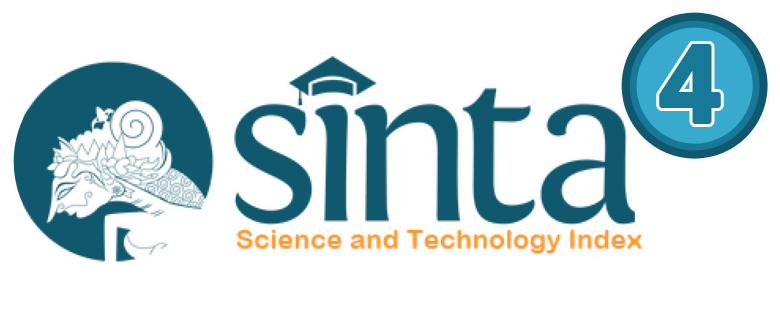Perlindungan Hak Memilih Dalam Pemilihan Umum Melalui Pemutakhiran Data Pemilih Berkelanjutan
Keywords:
Protection, Voting Rights, Elections, Updating Data, SustainabilityAbstract
Compiling a comprehensive, accurate and up-to-date voter list is important for the KPU to do because it greatly affects the protection of citizens' right to vote. This is as stated in Article 198 paragraph (2) of Law Number 7 of 2017 concerning General Elections which stipulates that every citizen who qualifies as a voter is registered 1 (one) time by the election organizer in the voter list. However, based on the Constitutional Court Decision Number 102 / PUU-VI / 2009 and Constitutional Court Decision Number 20 / PUU-XVII / 2019 which states that the right to vote is a constitutional right and a fundamental right as referred to in Article 27 paragraph (1) of the 1945 Constitution and Article 21 DUHAM, then the state must provide protection and guarantee the fulfillment of the right to vote to all citizens who qualify as voters to vote in the election, even though the voter concerned is not included in the voter list by using an Electronic KTP. The purpose of preparing voter lists is to provide legal certainty to voters as the basis for exercising their voting rights, and is also useful as a reference in planning the implementation of elections, particularly in calculating the need for ballot papers in Election administration. Therefore, the Election data must be updated on an ongoing basis by the KPU and its staff. Even though there are provisions in the Election Law that mandate the KPU to carry out Voter Data Updates on an ongoing basis, because there is no KPU Regulation / Decree that regulates the Updating of Continuous Voter Data (PDPB), the Regency / City KPU is entrusted with duties and obligations. Conducting Continuous Voters Data Updating (PDPB) has not been able to carry out data updating properly.
References
Adnan Buyung Nasution, A. P. M. Z. (2016). Instrumen Internasional Pokok Hak Asasi Manusia. Jakarta: Yayasan Obor Indonesia. https://doi.org/10.22487/j24775398.2016.v2.i2.6719
Arianto, B. (2011). Analisis Penyebab Tidak Memilih Dalam Pemilu. Jurnal Ilmu Politik Dan Ilmu Pemerintahan, 1(1).
Asy’ari, H. (2012). Arah Sistem Pendaftaran Pemilih Indonesia: Belajar dari Pengalaman Menuju Perbaikan. Jurnal Pemilu Dan Demokrasi, 2(1), 25.
Chodhury, N. (2017). Revisiting Critical Legal Pluralism: Normative Contestatiton in the Afghan Coutroom. Asian Journal of Law and Society, 4(3).
Fahmi, S. I. & K. (2019). Pemilihan Umum Demokratis : Prinsip-Prinsip Dalam Konstitusi Indonesia. Jakarta: Rajawali Press.
Hafidz, M. (2021). Hasil wawancara yang dilakukan secara virtual dalam jaringan (online) pada 8 April 2021. Jakarta.
Minan, A. (2019). Sistem Pendaftaran Pemilih: Masalah, Tantangan dan Alternatif Solusinya. Jakarta: Bawaslu.
Mukti Fajar ND, Y. A. (2013). Dualisme Penelitian Hukum Normatif dan Empiris.pdf. Yogyakarta: Pustaka Pelajar.
Nurhidayah, G. T. & J. (2018). Efektivitas Sistem Informasi Administrasi Kependudukan dalam Penetapan Daftar Pemilih Tetap (DPT) di Kabupaten Bandung Barat Provinsi Jawa Barat. Jurnal Dukcapil, 6(2).
Nurul Qamar. (2013). Hak Asasi Manusia dalam Negara Hukum Demokrasi. Berita Negara Republik Indonesia. Jakarta: Sinar Grafika.
Risdiana Izzaty & Xavier Nugraha. (2019). Perwujudan Pemilu yang Luber Jurdil melalui Validitas Daftar Pemilih Tetap. Jurnal Suara Hukum, 1(2).
Simamora, J. (2013). Perlindungan Hak Memilih sebagai Hak Konstitusional Warga Negara: Kajian Putusan Mahkamah Konstitusi Nomor 85/PUU-X/2012. Jurnal Yudisial, 6(2).
Simamora, J. (2015). Comparison of Constitutional Court Authority Between Indonesia and South Korea. Journal of Dinamika Hukum, 15(3).
Smith, R. K. M. (2008). Hukum Hak Asasi Manusia.
Soekanto, S. (2006). Beberapa Masalah Hukum dalam Kerangka Pembangunan di Indonesia. Jakarta: UI Press.
Subkhi, M. I. (2019). Redesain Pendaftaran Pemilih Pasca-Pemilu 2019. Jurnal Penelitian Politik, 16(2).
Downloads
Published
Issue
Section
License
Copyright (c) 2021 Soumatera Law Review

This work is licensed under a Creative Commons Attribution 4.0 International License.










